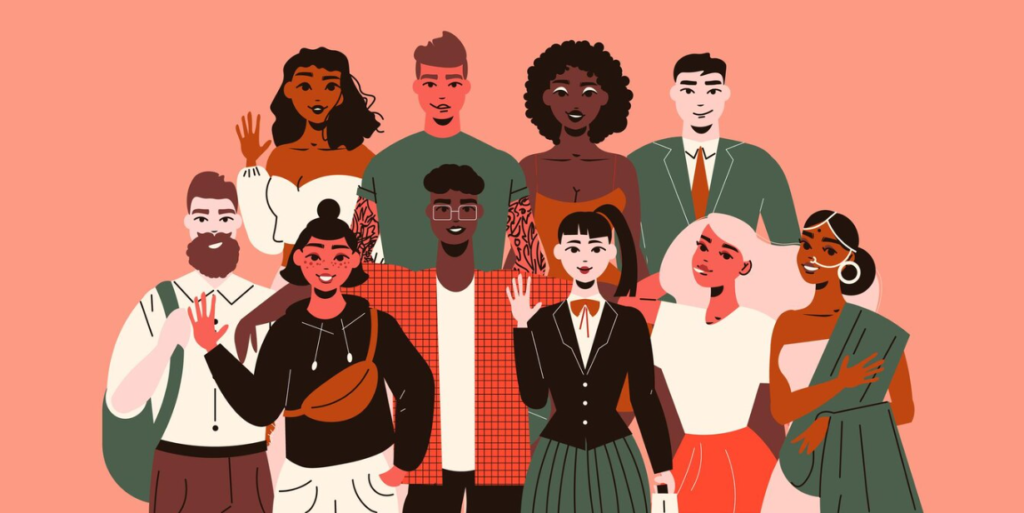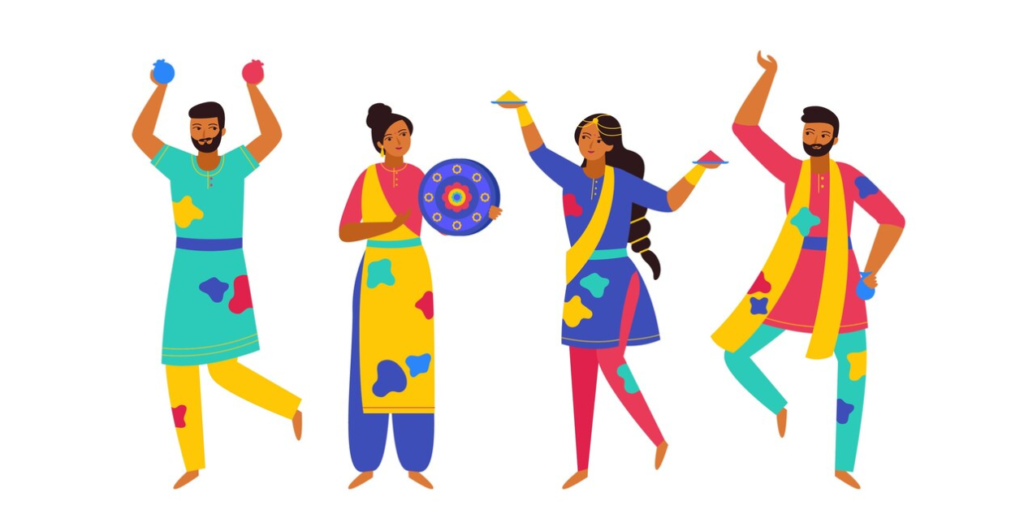The Impact of Culture on Our Choices and Decisions
Individuals vary in their values, beliefs, and perspectives due to cultural differences. These distinctions can influence decision-making approaches. When collaborating with a team on decisions, it’s crucial to recognize how these cultural variations impact their perception and method of decision-making.
The Influence of Cultural Background on Decision Processes
The cultural backdrop against which decisions are made significantly shapes choices. The decision-making process is intertwined with one’s identity, geographical location, and deeply-held values.
- For instance, someone rooted in a culture that emphasizes tradition and familial bonds might prioritize the guidance of their elders when choosing an educational path;
- Conversely, if one’s background is from a culture that cherishes innovation and venturing into the unknown, they might be more inclined to explore cutting-edge educational technologies before making significant choices.
When considering the cultural impact on decision-making, it delves into the idea that diverse cultures possess unique decision-making frameworks. These distinct frameworks subsequently influence individuals’ decision-making processes.
Cultural norms and values don’t merely guide but are intrinsically linked to decision-making mechanisms. If you found this exploration of cultural influence on decision-making intriguing, you may also appreciate further insights into the ways in which culture shapes our choices and behaviors.
Cultural Perspectives Shape Our Worldview and Decisions
Culture significantly shapes our perceptions and reactions to various scenarios. Each culture holds its unique set of values, influencing an individual’s perspective based on that culture.
- For instance, if your cultural background places a high emphasis on equality, your decisions will likely be centered around fairness more than someone from a culture where equality is not a primary concern.
Additionally, it’s worth noting that within any culture, diverse beliefs and principles exist. As an example, within the U.S., while some may prioritize equality, others might champion individual rights and freedoms.
Perspectives and decision-making processes are molded by cultural upbringing. For example, North American values prioritize individualism in decision-making, while Japanese culture emphasizes collective harmony. Consequently, an American raised in an individualistic culture may lean toward choices benefiting themselves, even if it doesn’t benefit the collective. However, this doesn’t imply that culture dictates every action. Instead, it suggests that cultural experiences influence how individuals perceive and approach situations, drawing from familial teachings or societal observations. If you’re intrigued by this exploration of cultural influence on decision-making, you may find it worthwhile to further examine how culture shapes individual choices and behaviors.
The Impact of Culture on Our Perceptions and Decision-Making
As individuals, our perspectives and judgments are significantly influenced by the culture we belong to, shaping not only how we perceive situations but also how we interact with others. Culture plays a pivotal role in shaping our self-identity and our perceptions of those around us. It also wields a considerable influence on our behavioral patterns, subtly manifesting itself in various aspects of our daily lives, such as the way we greet others upon initial encounters.
- For instance, in Japan, it is customary to offer a slight head tilt as a form of greeting, whereas in America, handshakes prevail as the customary way to greet someone;
- These cultural variations in greeting rituals exemplify how diverse cultural backgrounds can give rise to distinct social norms and behaviors.
As individuals within a specific cultural milieu, our cognitive processes are molded by the cultural lens through which we view the world. This cultural lens significantly impacts our decision-making processes, influencing the way we interpret information and determine our priorities when faced with choices. Consequently, our cultural perspectives can lead us to either overlook or actively avoid certain individuals or situations that do not align with our worldview, or conversely, emphasize the importance of elements that resonate with our cultural values.
The influence of culture on our decision-making is often subtle but can also be overtly pronounced. It is imperative for us as individuals to acknowledge the profound impact of the culture that surrounds us, as it has the potential to shape our values and guide our decision-making processes. By recognizing how culture informs our perspectives, we can strive to ensure that our values align with our authentic selves, ultimately leading to more informed and harmonious choices.

How a Culture’s Historical Legacy Shapes Decision-Making
It’s often overlooked, but the historical narrative of a culture wields a profound influence on the way individuals perceive and interact with the world. Whether one belongs to an ancient culture with millennia of heritage or a relatively new culture with just a few decades of existence, their worldview is intricately intertwined with the narratives and experiences that constitute their identity as a member of that cultural group.
The history of a nation can exert a significant and far-reaching impact on the decision-making processes of its inhabitants, even when those decisions may not have a direct connection to historical events.
- For instance, if one resides in a nation marked by a long and tumultuous history of conflict and warfare, they may display a higher tolerance for aggressive behavior in daily interactions, having assimilated such conduct as a normalized aspect of their lives;
- Conversely, individuals living in times of enduring peace may be more inclined to perceive conflict as unacceptable, prompting them to take proactive measures to prevent violence before it can manifest.
In essence, the historical tapestry of a culture weaves itself into the fabric of decision-making, subtly but significantly influencing how individuals navigate the complexities of the world around them.
Cultural Differences as a Global Commonality
Cultural differences manifest in various forms across the globe, permeating all societies and regions. One notable dimension of these disparities can be seen in the realm of international relations, where countries that have enjoyed extended periods of harmonious coexistence with their neighboring nations often exhibit a reduced propensity for conflict when compared to regions characterized by historical animosities. Similarly, in the realm of governance, nations with limited exposure to democratic systems may tend to embrace less democratic governance structures, while those accustomed to autocratic leadership might display a higher tolerance for authoritative rule. These multifaceted cultural distinctions serve as intriguing facets of human society, influencing how nations interact on the global stage and shaping their political landscapes.
The Impact of Cultural History on Decision-Making
The historical context of a culture exerts a profound influence on the decision-making processes within that society, and comprehending this dynamic is of utmost importance.
- To illustrate, consider residing in a society where the prevailing belief is that every aspect of life is preordained by fate;
- Convincing individuals in such a culture to embrace ideas that contradict this deeply ingrained belief becomes an arduous task;
- This is because most people within this cultural framework tend to perceive their individual lives as integral components of a larger narrative, even if they lack a precise understanding of that narrative’s trajectory or conclusion;
- When individuals feel powerless in shaping their own destinies, they are less likely to seize opportunities for change when presented with them.
In contrast, imagine growing up in a society where the predominant belief centers around free will, and individuals consequently take responsibility for their actions. In such an environment, you are more apt to recognize and act upon opportunities for change. This divergence in cultural outlook could set you on a markedly different life path than one predetermined by external forces.
Cultural Orientation & Decision-Making

Culture exerts a substantial influence on the decision-making processes within organizations, with some cultures embracing collectivism and others emphasizing individualism.
In collectivist cultures, the collective team takes precedence over individual interests. Goals are collectively established, and everyone collaborates towards their achievement. Conversely, in individualistic cultures, each person pursues their unique goals and works independently to attain them.
This cultural distinction significantly influences decision-making within organizations, as it shapes how individuals perceive their roles, responsibilities, and the roles of their colleagues. In collectivist cultures, cooperation on assigned tasks, even if they diverge from personal goals or interests, is often expected, as they are deemed essential for the team or organization’s success. This arrangement may pose challenges for those who prefer to engage in projects aligned with their passions but may not contribute to the organization’s rapid progress.
In contrast, individualistic cultures prioritize independence, personal accomplishment, and individual success, sometimes placing these values ahead of collective goals. Collectivist cultures, on the other hand, foster a culture of collaboration, information sharing, and joint efforts for the betterment of the community or company.
Managers must possess an understanding of the prevailing cultural orientations within their organizations to navigate the complexities of workplace dynamics effectively and make decisions that align with the diverse needs and values of their team members.
Variations in Cultural Hierarchy
| Aspect | Hierarchical Culture | Non-hierarchical Culture |
|---|---|---|
| Authority and Leadership | Reverence for authority figures; willingness to defer to decisions of leaders | Less structured and more democratic; autonomy in decision-making. |
| Decision-Making | Leaders make decisions for the group; expedited decision-making; | Employees have more freedom to make their own decisions. |
| Conflict Resolution | Potential for issues when conflicts arise among those under leadership; | Less potential for conflicts as employees have autonomy. |
| Communication | Hesitation to express concerns about leaders’ actions or decline requests; | Fewer prescribed norms for behavior, allowing more open communication. |
| Accountability | Compliance with orders from those in power; personal repercussions for dissent; | Employees are accountable for their actions but have greater autonomy. |
| Ethical Behavior | Emphasis on following established norms; ethical issues may be overlooked. | Focus on individual responsibility; potential for greater ethical awareness. |
Hierarchical Culture
A hierarchical culture is characterized by a reverence for authority figures, a willingness to defer to their decisions, and a general inclination to obey orders from those in positions of power. Within such cultural contexts, leaders bear the responsibility of making decisions on behalf of the entire group. This can expedite decision-making and promote efficiency, yet it also harbors the potential for issues to surface when conflicts arise among those under the leadership. Individuals within these hierarchies may hesitate to express concerns regarding a leader’s actions or decline requests, as doing so could entail personal repercussions or loss of face in front of their peers.
Non-hierarchical Culture
In contrast, a non-hierarchical culture tends to be less structured but more democratic. Employees enjoy greater autonomy in making decisions without excessive concern for how their superiors perceive them on personal or professional levels, primarily because there are fewer prescribed norms dictating appropriate behavior in various situations. This does not imply that employees are exempt from responsibility for their actions, as they remain accountable for rule violations or failures in tasks assigned by supervisors. However, it signifies that they are not encumbered by the need to seek explicit permission in their decision-making processes.
Conclusion
Within any organization, variations in cultural values are inevitable. However, when an organization boasts a diverse workforce with individuals hailing from various cultural backgrounds, it becomes imperative for leaders to be attuned to the potential influence of these cultures on their employees. It is essential that organizational values serve as the universal standards that every member of the organization is expected to uphold. This becomes particularly crucial, especially in the realms of ethical behavior and attitudes, as it helps prevent the inadvertent propagation of unethical decisions that may unfairly impact certain employees.
You may also like the article about the role of holidays in shaping cultures, where we delve into how holidays can profoundly influence culture. Within organizations, understanding these cultural influences is pivotal. Furthermore, as you explore this fascinating theme, you may also find it interesting to examine how holidays play a significant role in shaping an organization’s culture.
